
There’s a science to bodybuilding. As you work out, you tear muscle tissue, and as the body repairs it, your muscles grow stronger. Several compounds, ranging from the antioxidants that fight oxidative stress to nourishing vitamins and minerals, play a part in how fast your muscles recover and grow following an intense workout.
If you’re a bodybuilder, you can get most of those nutrients through the foods you eat. This is why it’s important to know what to eat to gain muscle mass. I’ve written a list of the 12 best foods for muscle recovery and growth, which can help you get a feel for the foods that can benefit your muscles the most. At the end of this article, I’ll share three meal ideas that you can use as a springboard into eating foods that support your muscle gain.
12 Muscle-Friendly Foods
Lean Beef
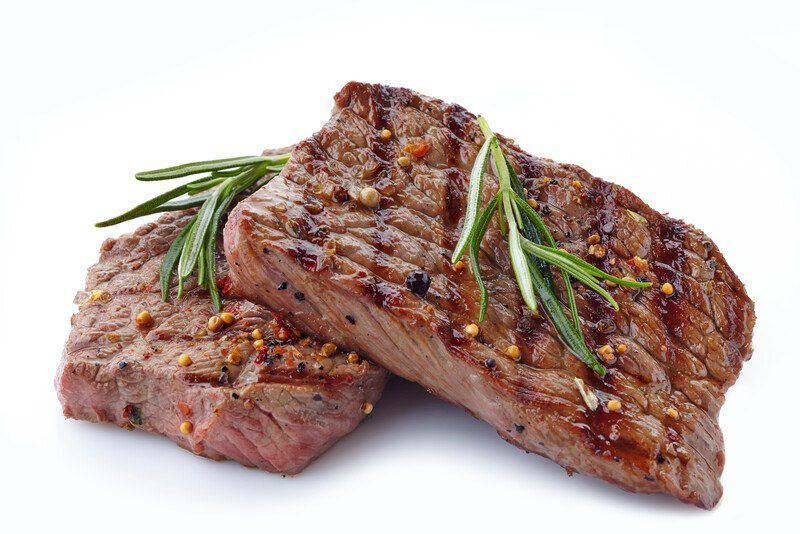
Lean beef is one of the most nutrient-dense foods for people who are trying to build muscles and recover from their workouts. One three-ounce serving of 90% lean ground beef contains 22.6 grams of protein or around 45% of the recommended daily intake. This protein provides the amino acids that are the building blocks for growing new muscle.
Beef is also rich in niacin, with 22% of the daily recommendation in one serving size. Some studies have shown that supplementing with niacin helps build muscle, so it’s nice to get it from a natural source. This serving size of lean ground beef also provides 15% of the daily recommended intake for vitamin B6 and 38% for zinc.
Mushrooms
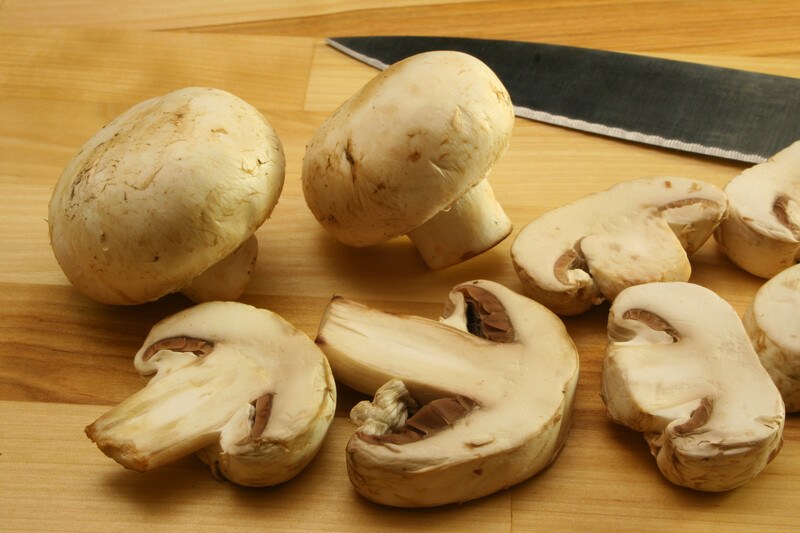
Mushrooms are a great food for bodybuilders because they have a decent nutritional profile. While they’re low in calories, they contain compounds that help athletes relax and build their muscles.
For example, one cup of sliced white button mushrooms contains 10% of the recommended daily intake for pantothenic acid. Pantothenic acid plays a role in recovery following a workout and helps break down tissues into components for building stronger muscles. These mushrooms also contain 13% of the daily recommendation for niacin and 9% for selenium, which has been studied as a compound that can speed up muscle recovery.
The type of mushrooms that bodybuilders look for vary from grocery-store varieties to more exotic mushrooms such as Cordyceps, Shiitake, and Reishi.
Poultry
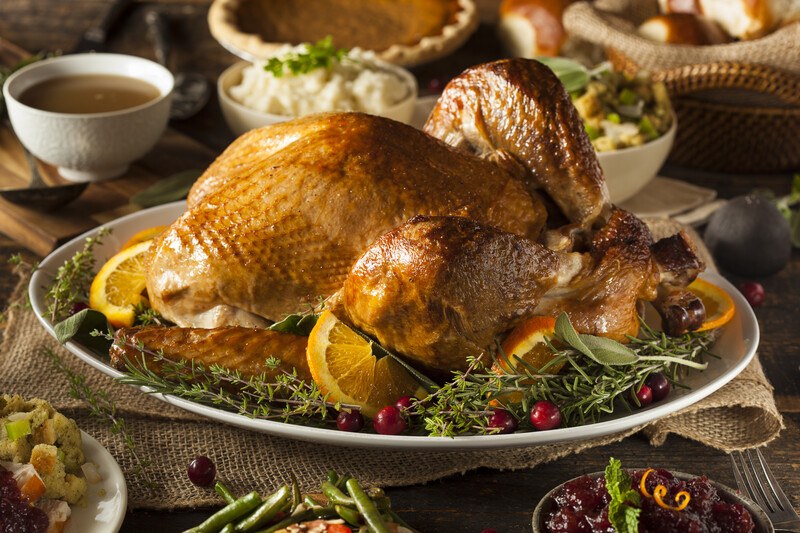
Like beef, poultry is a terrific source of protein that can help build stronger, bulkier muscles. This includes branched-chain amino acids such as leucine, isoleucine, and valine, which have been studied for their ability to reduce muscle soreness and fatigue while increasing muscle growth. In many areas of the country, poultry is also less expensive than other forms of meat.
One 3-ounce serving size of chicken contains around 20 grams of protein. It’s also a surprisingly good source of vitamin A. Three ounces of chicken provides around 10% of the daily recommended intake for vitamin A. Vitamin A is important for bodybuilders because it aids the growth and repair of body tissues.
Berries
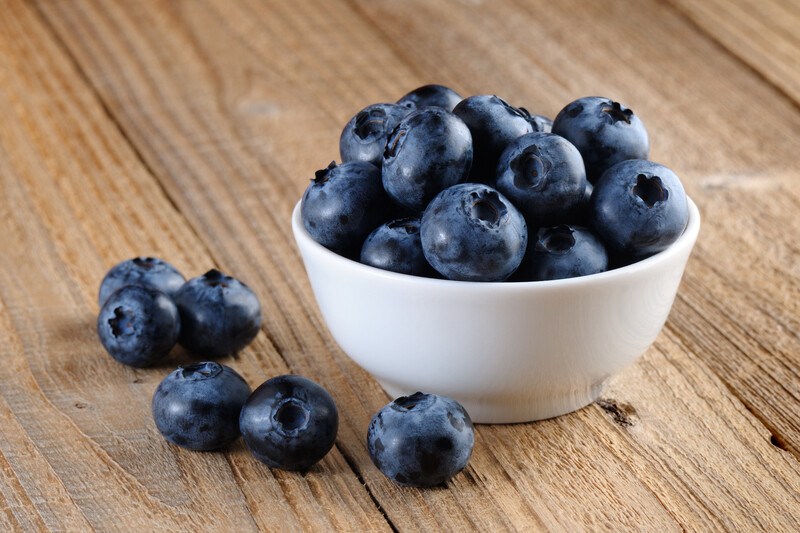
One of the most important benefits that berries offer to bodybuilders is that they can help protect against free-radical attacks. This is important because an intense weight-training workout can release free radicals, which cause oxidative stress and could trigger some diseases.
The high antioxidant levels in berries help prevent that by cleaning up free-radicals following a strenuous workout. This allows muscles to recover more quickly, so that muscle growth can occur.
Blueberries, blackberries, and raspberries have the highest antioxidant levels of berries. Cranberries are also rich in antioxidants that could help protect against oxidative stress during recovery.
Green Peas
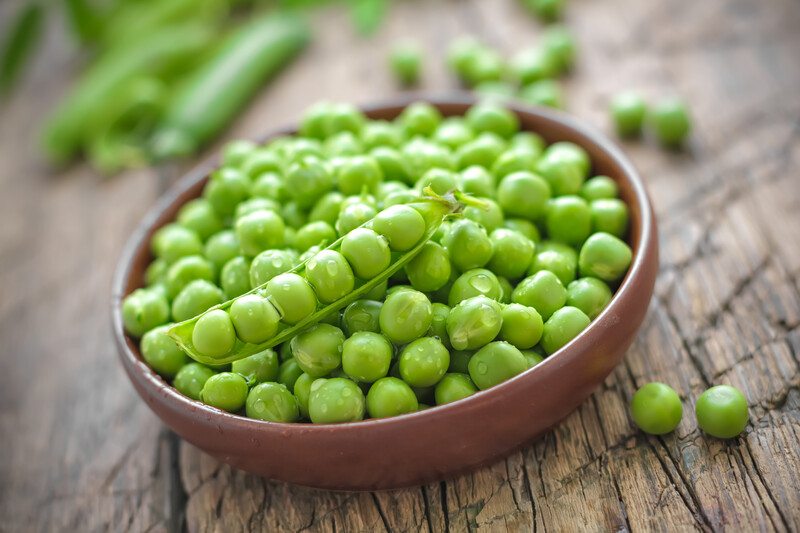
Green peas are an excellent source of vegetable protein. A one-cup serving of green peas contains 8 grams of protein, which is around 16% of the daily recommended intake, as well as 96% of the daily recommendation for vitamin C. This is a wonderful combination because vitamin C has antioxidant and anti-inflammatory properties that could aid with muscle recovery following a workout.
Peas are also rich in other helpful compounds for muscle recovery and growth, including vitamin A, phosphorus, iron, and thiamin. Thiamin is involved in the growth of new body tissues, including muscles, and phosphorus helps synthesize proteins in the body to support that growth. Iron plays a role in muscle recovery. One cup of green peas provides 32% of the daily recommendation for thiamin, 6% for vitamin A, 22% for phosphorus, and 12% for iron.
Protein Shakes
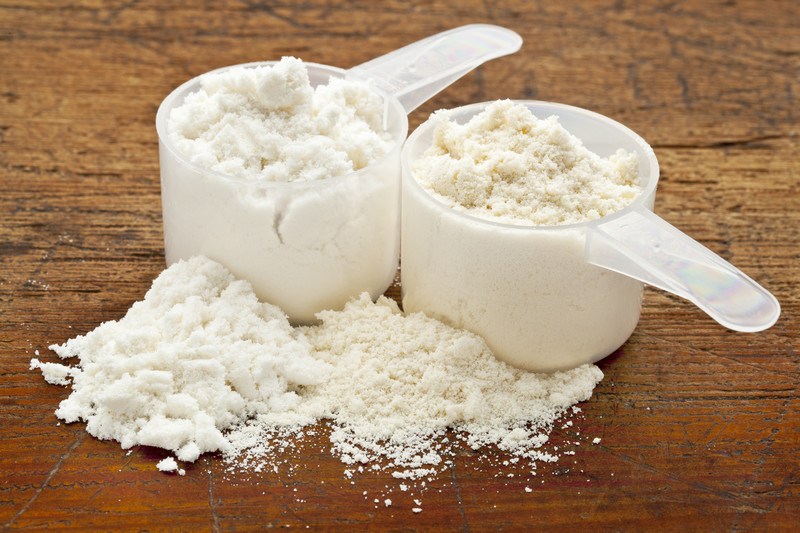
Protein shakes are a convenient way to consume enough protein to rebuild muscles after breaking it down during strenuous exercise. There are several types of protein shakes. One of the most common types is made from whey protein, but protein shakes can also be made from pea protein, soy protein, casein, egg whites, hemp, and collagen.
While protein shakes do contain concentrated amounts of amino acids, they often lack the other nutrients provided by eating meats. For example, eating a fatty fish like salmon provides both protein and a high concentration of omega-3 fatty acids, which play a role in protein synthesis for muscle growth. A four-ounce serving of 93% lean ground beef contains 48% of the daily recommendation for protein, but it also provides 31% of the daily recommendation for phosphorus and 51% for zinc, which also plays a role in protein synthesis and muscle repair.
Cruciferous Vegetables
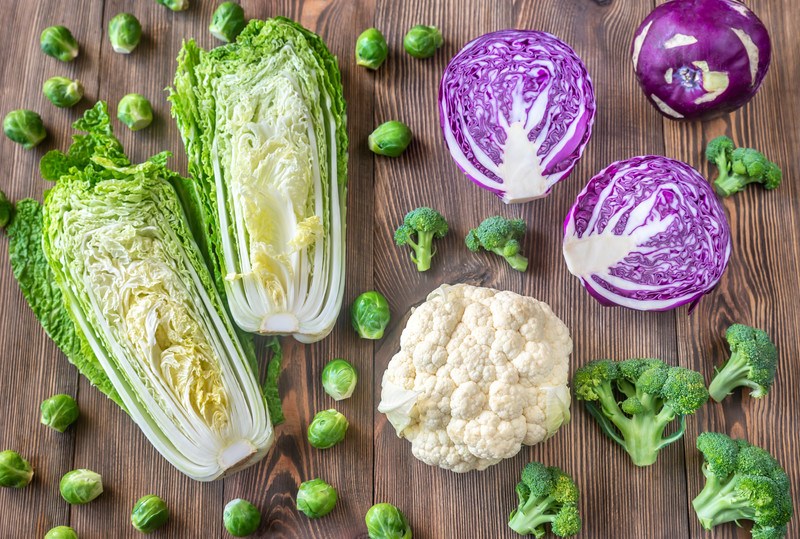
Cruciferous vegetables are a truly healthy choice for almost every circumstance, and that includes bodybuilding. That’s partly because cruciferous vegetables contain a substance called sulforaphane that provides some antioxidant and anti-inflammatory benefits.
Recently, sulforaphane has also been studied for its role in muscle gain. In one study, sulforaphane was shown to deactivate a compound that slows muscle growth.
Cruciferous vegetables, which include cabbage, kale, broccoli, cauliflower, brussels sprouts, and other foods in the cabbage family, are packed with other nutrients, too. For example, one cup of raw kale provides 22% of the daily recommended intake for vitamin C and 68% for vitamin K. Vitamin K is important because Gas6, a protein responsible for cellular growth regulation, is dependent on it.
Fish
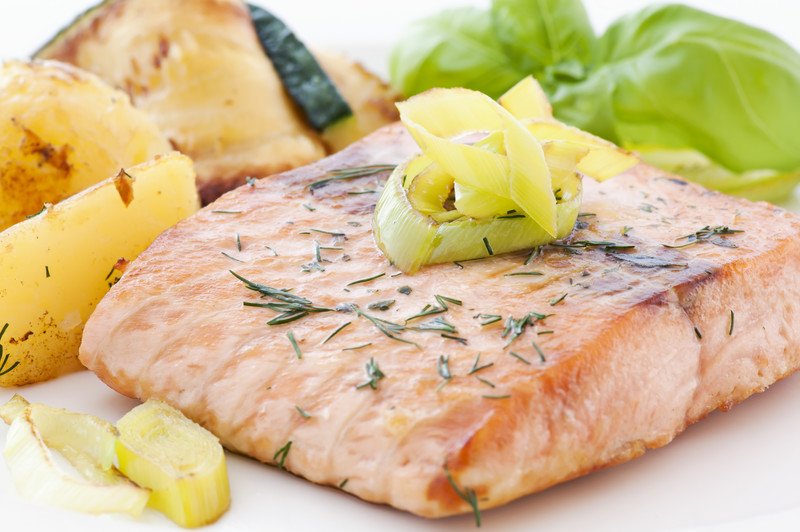
Lean protein like fish is essential to bodybuilding because it provides all the necessary amino acids for muscle growth without overloading the body with calories. Some of the best fish to eat include black cod and rainbow trout. These fish are considered fairly lean, but they still contain omega-3 fatty acids that are helpful for fighting fatigue and soreness from exercise.
One rainbow trout fillet contains 16 grams of protein or around 32% of the daily recommended intake. It’s also surprisingly rich in vitamin D, which helps muscles recover from exercise and could act as a natural steroid for muscle growth. One trout fillet contains 125% of the daily recommendation for vitamin D.
Potatoes
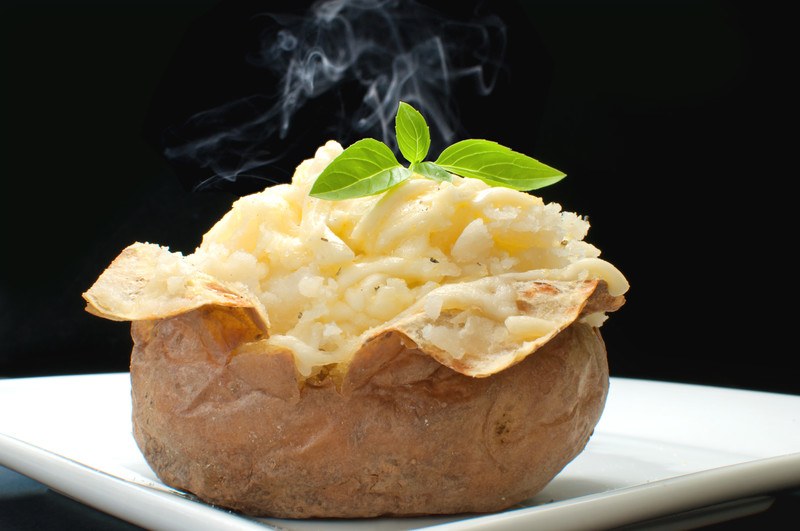
White potatoes are rich in fiber, vitamins, and minerals that could help with muscle recovery and growth. They’re rich in carbohydrates, which provide energy for workout out. This could be helpful because some studies indicate that a gluten-free diet could support a lean body composition. Potatoes provide a great source of energy without gluten.
Potatoes are rich in other helpful compounds, too. One medium potato provides 10% of the daily recommended intake for phosphorus, 6% for zinc, 9% for iron, and 8% for protein. It also supplies around 20% of the daily recommendation for potassium, which is necessary for proper muscle movement. People with potassium deficiencies have reduced strength, while taking potassium could be associated with quicker muscle recovery.
Eggs
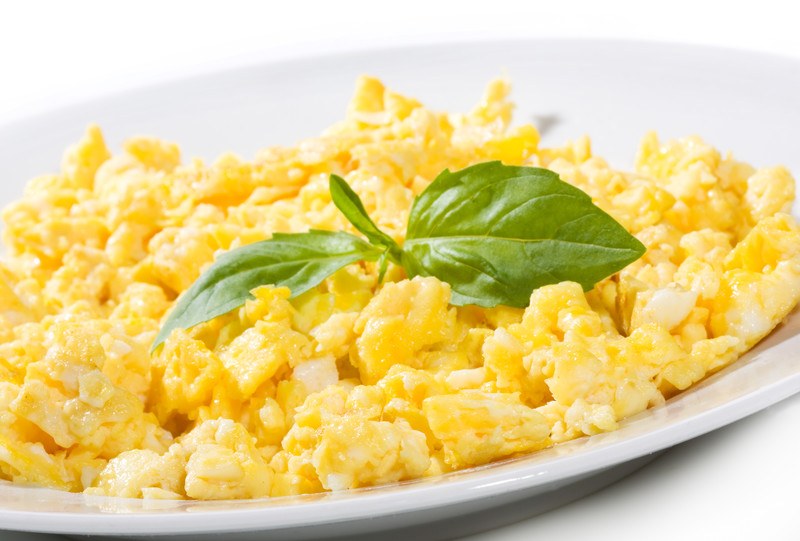
Eggs are a great food for muscle growth because they contain a lot of protein and other helpful nutrients. One egg contains 6.3 grams of protein or around 13% of the daily recommended intake. This protein source includes all of the essential amino acids that can’t be made in the human body.
Besides protein, eggs are rich in vitamins and minerals. One egg supplies 14% of the daily recommendation for phosphorus and 28% for selenium, a trace mineral that boosts the immune system and fights free radical damage following heavy workouts. Eggs are also a good source of zinc, iron, vitamin D, vitamin A, pantothenic acid, and vitamin B12.
Some research shows supplementing with vitamin B12 improves muscle recovery and strength, so finding it is a natural source is great for people concerned with muscle recovery and growth.
Nuts

As a general rule, nuts are rich in both proteins and fats but low in carbohydrates. This makes them a great food option for people looking to build muscle mass while keeping their carb intake low.
The nutrition profile varies from nut to nut. Almonds have more protein than most nuts. One ounce of raw almonds contains 12% of the daily recommended intake for protein, as well as 19% for phosphorus and 8% for zinc. Almonds are also a great source of iron, calcium, thiamin, and niacin.
Peanuts are even higher in protein than almonds are. One ounce of raw peanuts provides 7.3 grams of protein, or around 15% of the daily recommended intake for protein. Peanuts are also a good source of niacin, thiamin, potassium, iron, phosphorus, and zinc.
Avocado
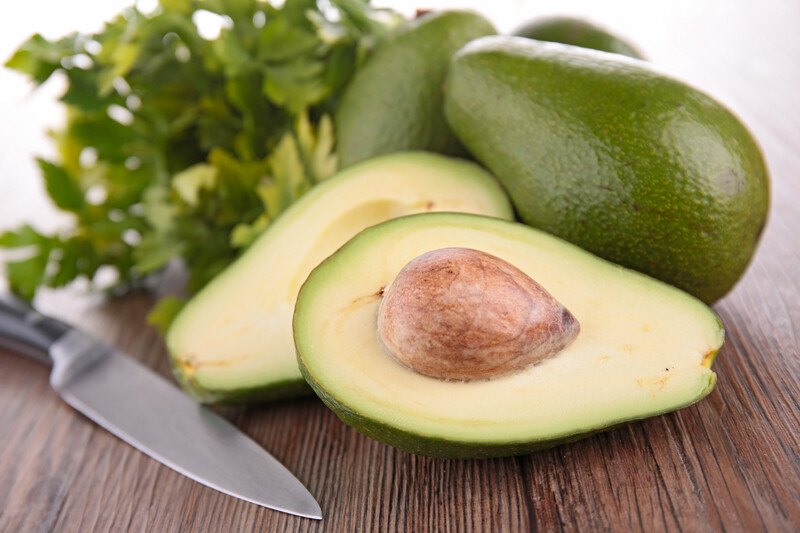
Avocados are rich in several nutrients that could benefit muscle recovery and growth. One cup of mashed avocado provides 4.6 grams of protein or around 9% of the daily recommended intake for protein. This serving size also supplies 24% of the daily recommendation for potassium, and it’s rich in niacin, thiamin, vitamins A and K, iron, phosphorus, and zinc.
Avocados are also a good source of omega-3 fatty acids, which have been shown to reduce muscle fatigue and soreness and to play a role in the growth of new muscle tissue.
Three Muscle-Supporting Meals To Try

Now that you’ve read about the 12 best foods for muscle recovery and growth, let’s discuss some ways you can combine these foods into simple meals. These meals are an easy way to provide your body with the nutrients it needs to recover quickly and fully following an intense workout, so that you can grow your muscle mass the way you want to.
Idea #1: Kale Berry Smoothies
As an alternative to a boring protein shake, try blending kale and berries with a pea-protein-based protein shake powder. Since the kale is a cruciferous vegetable, it provides sulforaphane’s benefits, and the berries can help fight oxidative stress when you’re finished exercising. This is a light meal idea that could make a convenient and fast post-workout recovery meal.
Idea #2: Beef And Mushrooms With Broccoli
For this idea, grill a steak and top it with sauteed mushrooms. Serve it with a side of steamed broccoli for an extra burst of sulforaphane. This meal is a great anytime meal. If you’re low on energy, you could add a baked potato for a carb boost that still supports muscle growth.
Idea #3: Turkey With Avocado Wedges And Cranberries
As an alternative to popular gourmet turkey-and-avocado sandwiches, keep the carbs on this meal down by serving roasted turkey with avocado wedges over a bed of kale. Top it with fresh cranberries for a tangy flavor and extra antioxidants for helping with muscle recovery.



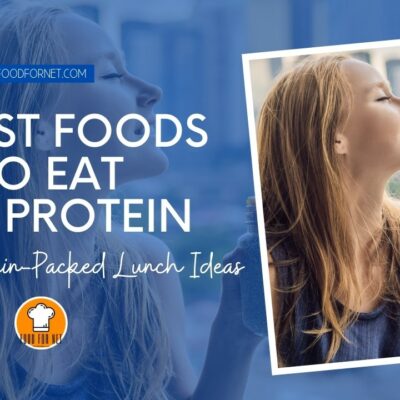




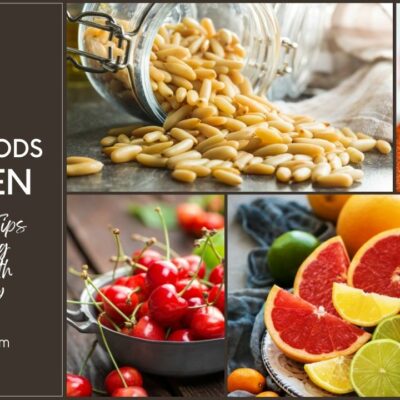
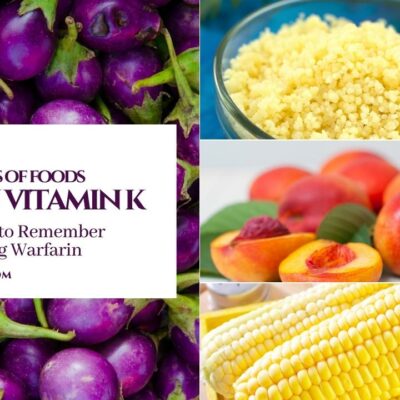


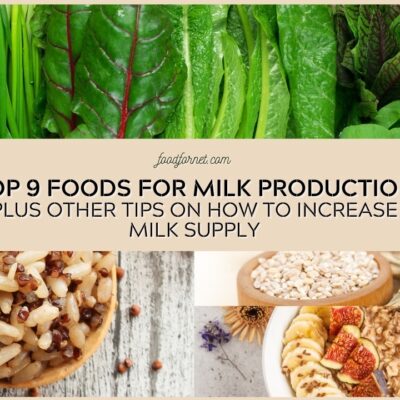



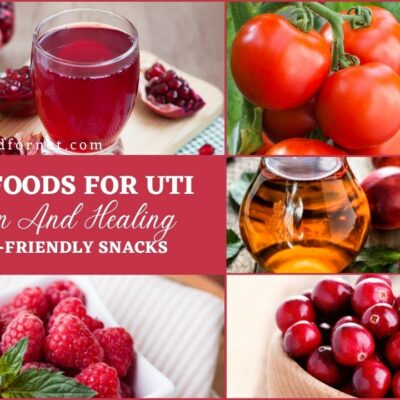
 The Best Raspberry Vodka
The Best Raspberry Vodka
Leave a Reply